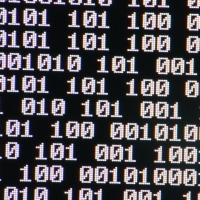Seriously, What Is Big Data?

Big data is drawing large interest from companies in the tech industry and beyond. Anyone who is anyone in the software industry knows what big data is. For some, big data is about breaking data down into the most granular level and creating something useful from those grains of information. For others, it is about storytelling and creating context for the broader scope of business.
But, for something that aims to have a scientific and specific answer for everything, there seems to be no one answer for what it actually is.
Dan Ariely put it in one of the most entertaining ways possible. In a Twitter post, the professor of behavioral economics at Duke University wrote, “Big data is like teen sex. Everybody is talking about it, everyone thinks everyone else is doing it, so everyone claims they are doing it.”
So what is big data? For some people, it’s much easier to genuinely and confidently know what big data is than to put it into words as you stumble to explain the definition and concept to someone else. Isn’t there a concrete definition for it? Yes, there is. The catch is that there is more than one definition. A lot more. Recently, Forbes outlined twelve different viable definitions, and Inside-BigData grabbed some of the nuggets from forty-plus definitions listed by UC Berkeley’s new Master of Information and Data Science program.
Even if you can assertively say what big data means to you, consider the two articles and all the others out there that offer different perspectives on big data. The definition of big data is a very fluid thing, and understanding how others see it can help you better define exactly what it means to you.
The definitions on the two sites range from the technical to the painfully accurate. They highlight the good that big data has brought to the world and the misguided beliefs that big data has fostered in uneducated individuals.
In the Forbes’ article one of the more humorous definitions that highlights the common misunderstandings surrounding the topic was “the belief that the more data you have the more insights and answers will rise automatically from the pool of ones and zeros.”
A notable definition from the UC Berkeley report was from one of Google’s senior research scientists Daniel Gillick, who remarked that “Big data represents a cultural shift in which more and more decisions are made by algorithms with transparent logic, operating on documented immutable evidence.”
With so many different ideas about what big data is and what it means in terms of benefits, the only big idea to have on big data is to understand and be secure in what it means to you, your team, and your organization.

